Table of Contents
ToggleLearning a new language can feel like trying to juggle flaming swords while riding a unicycle. It’s thrilling, a bit terrifying, and oh-so-rewarding. Whether it’s impressing friends with your newfound fluency or simply ordering a croissant in Paris without sounding like a tourist, the journey is packed with hilarious missteps and unforgettable moments.
But let’s be real: navigating grammar rules and pronunciation quirks can sometimes make one question their sanity. Yet, amid the confusion, there’s a unique satisfaction in breaking down barriers and connecting with people from different cultures. Dive into the wild world of language learning, where every stumble is a stepping stone and every awkward conversation is a story worth telling. Get ready to discover how this adventure can transform not just the way one communicates, but the way one sees the world.
Overview of Language Learning Experience
Language learning presents an exhilarating journey filled with various challenges. Mastering a new language involves navigating intricate grammar rules and nuanced pronunciations. Achieving fluency brings immense satisfaction, empowering individuals to communicate effectively and connect with others across cultures. Engaging in conversations opens up diverse perspectives and enriches one’s understanding of different societies.
Students often find themselves experiencing the thrill of their first conversation in a new language. Classroom learning serves as a foundation, but real-life practice solidifies knowledge. Many discover that immersing themselves in local environments accelerates their learning process. Using language apps, participating in language exchanges, and watching foreign films enhance skills outside traditional settings.
Frustration can surface when faced with complex syntax or unfamiliar vocabulary. Overcoming these obstacles builds resilience and determination. Learners regularly report that consistent practice leads to gradual improvement, transforming initial struggles into success stories. Patience plays a crucial role, as the journey often requires time and dedication.
Feedback from peers or language instructors significantly contributes to progress. Constructive criticism identifies areas for improvement, fostering growth. Many learners benefit from a supportive community, finding motivation through shared experiences. Celebrating small victories, such as mastering a difficult phrase, boosts confidence and encourages continued effort.
Ultimately, the language learning experience proves transformative. Embracing the challenges enriches personal growth, leading to a broader worldview. Each step toward fluency not only enhances communication skills but also fosters deeper connections and cultural appreciation.
Factors Influencing Language Learning Experience

Various factors significantly impact the language learning experience. Understanding these can enhance both motivation and effectiveness.
Motivation and Goals
Intrinsic motivation drives many learners. Personal interest in a culture or a desire to travel influences engagement. Setting specific goals creates a clear roadmap. Goals, such as achieving conversational fluency or passing a proficiency exam, guide learners’ focus. External motivations, like job requirements or academic ambitions, also play a role. Learners fueled by clear goals often experience heightened determination. Engaging with inspiring content, like movies or music in the target language, reinforces commitment. Ultimately, strong motivation translates into consistent practice and progress.
Learning Environment
The learning environment shapes experiences. Immersive settings, such as living in a country where the language is spoken, accelerate learning. Availability of resources, including books, apps, and classes, enhances opportunities. A supportive community fosters interaction and practice. Engaging with native speakers boosts confidence and offers real-life speaking experiences. Formal learning environments, like schools or workshops, provide structured guidance and feedback. Learners benefit from diverse learning methods, whether online or in-person. Overall, a positive and resource-rich environment nurtures growth and encourages persistence.
Effective Language Learning Strategies
Effective strategies enhance the language learning experience, making it more enjoyable and productive. Two key areas to focus on are immersive techniques and the use of technology.
Immersive Techniques
Immersive techniques create rich environments for language practice. Engaging with native speakers boosts fluency and cultural understanding. Traveling to countries where the language is spoken accelerates learning through daily interactions. Listening to local music or watching movies enhances listening skills while making language fun. Incorporating reading materials like books or newspapers promotes vocabulary expansion. Participating in conversation groups fosters community and allows learners to practice in supportive settings.
Technology in Language Learning
Technology plays a crucial role in modern language learning. Mobile apps provide instant access to vocabulary and grammar exercises. Interactive platforms for language exchange connect learners with native speakers worldwide. Online training modules enable tailored learning experiences based on individual progress. Virtual reality environments can simulate real-life situations for practical understanding. Additionally, podcasts and educational videos offer diverse ways to reinforce listening and comprehension skills. These resources cater to various learning styles, enhancing engagement and retention.
Common Challenges in Language Learning Experience
Language learning presents a range of challenges that can test learners’ perseverance and adaptability. These hurdles can significantly impact the journey towards fluency.
Overcoming Language Barriers
Language barriers create significant obstacles in communication. Understanding local accents and dialects requires attentive listening and patience. Learners often struggle with unfamiliar vocabulary, leading to feelings of frustration. Regular practice with native speakers offers real-time experience and context. Engaging in conversation groups allows learners to ask questions and clarify misunderstandings. Utilizing language apps designed for speaking practice can further enhance vocabulary and pronunciation. Building confidence through gradual exposure helps diminish anxiety related to speaking.
Managing Expectations
Managing expectations is crucial in the language learning process. Setting realistic goals prevents discouragement and fosters a positive learning attitude. Beginners may anticipate quick mastery, but fluency typically requires consistent effort over time. Frequent assessments of progress keep motivation levels high. Celebrating small achievements reinforces determination and enhances self-esteem. Acknowledging the normalcy of making mistakes normalizes the learning curve. Regular reflection on one’s journey can inspire persistence and growth. Prioritizing learning over perfection enables learners to appreciate the incremental nature of language acquisition.
Language learning is a dynamic journey filled with both challenges and triumphs. It transforms not just communication skills but also perspectives on culture and connection. The blend of immersive experiences and technology creates a rich learning environment that fosters growth and resilience.
Overcoming hurdles along the way strengthens determination and builds confidence. Each small victory contributes to a greater understanding of the language and its nuances. As learners navigate this intricate process, they not only gain fluency but also enrich their lives through meaningful interactions and cultural appreciation. Embracing the adventure of language learning opens doors to new possibilities and deeper connections with the world.




